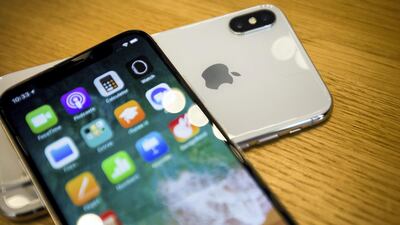Many iPhone users woke up on December 2 to find their phones repeatedly crashing and rebooting, thanks to a bug in Apple’s iPhone operating system (iOS) 11.1.2.
The problem is believed to have started once the clock hit 12.15am on Saturday, December 2, in each respective time zone. Once that time struck, iPhones began crashing and restarting nearly instantly, and randomly.
Users around the world were affected, according to tech sites.
The cause of the problem seems to be a glitch in the notifications system, with apps that offer local reminders or daily notifications (such as Whatsapp, workout apps, medication reminder apps, and so on) triggering the crash.
Irritated users quickly took to Twitter to vent their anger:
@Apple Am I alone ? My iPhone has started to constantly restart? It does it every minute or so, forcing me to login in every time. This is very frustrating especially when you’re in the middle of something as it wipes out your last action!! #iphonerestarting #iphonehell
— Node Zero (@NodeCentral) December 2, 2017
Others expressed their frustrations through a range of memes:
My iPhone has picked up a cute habit of crashing and restarting every 60 seconds 🙃🙃🙃 pic.twitter.com/PvAbrcjcFM
— Natalie King (@Natalie_King7) December 2, 2017
Faced with an onslaught of complaints, Apple responded by issuing a step-by-step guide for affected users to solve the issue.
On its website, it advises users to take the following steps to turn off notifications for all the apps on their device, then update their device to iOS 11.2:
1) Tap Settings > Notifications.
2) Tap an app, then turn off Allow Notifications. Repeat this step for each app.
3) Update your device to iOS 11.2.
4) After updating, tap Settings > Notifications and turn Allow Notifications on again for each app.
It is not the first software problem faced by Apple this week. Just days earlier, the tech giant's customers discovered a significant security flaw in the latest version of the operating system for Mac computers that allows anyone to log in without a password, potentially making private user data vulnerable.
The issue, discovered in the MacOS High Sierra operating system for laptops and desktops that was released in September, allows people to enter the word “root” when prompted for a username, and provide no password when logging on to the device.
The glitches are rare and potentially embarrassing failures for Apple, whose software is generally known for being less prone to hacking and malware infections than Windows software from Microsoft Corp.
